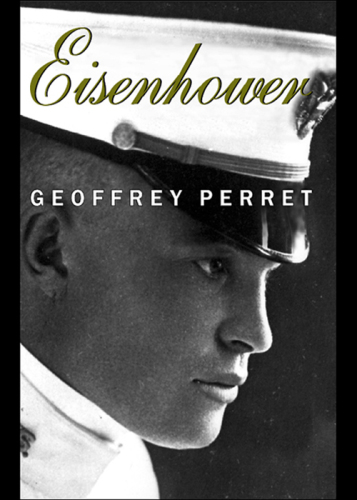
Eisenhower
کتاب های مرتبط
- اطلاعات
- نقد و بررسی
- دیدگاه کاربران
نقد و بررسی

October 4, 1999
Breaking no new ground in the way of facts or interpretation, Perret (Old Soldiers Never Die; Ulysses S. Grant) nevertheless provides a useful, generally efficient summary of Ike's long and multifaceted life--albeit one devoid of critical judgments and one that is stronger on Ike's military career than on his political career. Evidently an ardent fan of the warrior-president, Perret fails to give adequate scrutiny to such troubling events as Eisenhower's well-known abandonment of his old friend George Marshall during the McCarthy era, or his key role in fostering the plan for the ill-starred Bay of Pigs invasion, put into effect so disastrously by Kennedy--whom he despised--once Ike had left office. Perret is strong in portraying all aspects of Eisenhower in his role as Supreme Commander of the Allied Forces in Europe during WWII. The author is particularly good at depicting Ike's intense, sometimes tense relationships with British Field Marshall Montgomery and President Roosevelt, as well as with his own wife, Mamie, who tried but failed to get the general to assure their son John safe duty away from combat--something neither father nor son thought proper. What the book lacks as a presidential biography, it makes up for as the biography of a great military leader.

June 1, 1999
Billed as the first major biography of Eisenhower since Stephen Ambrose's two-volume study in 1981; from the author of the noted MacArthur biography, Old Soldiers Never Die.
Copyright 1999 Library Journal, LLC Used with permission.

July 1, 1999
Perret exhibits a psychologist's knack for dissecting personalities, a novelist's eye for detail, and a dramatist's sense of pacing in this portrait of Eisenhower, just as he did in his biographies of MacArthur and Grant. There are really two Eisenhowers: the grinning Kansas kid who climbed the army hierarchy and the D-Day Eisenhower, a columnar figure supporting the marble edifice of History. Perret most effectively illuminates the former and the formative influences on Ike. He astutely critiques the departures from probable truth about incidents in Ike lore or in Ike's various memoirs, for example, concerning his enrollment in the military academy. That prize was endangered by a white lie about his age and by a pro-Democratic Party speech he made (his only public political utterance before 1952). Ike overcame the indiscretion in a way that foreshadowed his future rise: by impressing the powerful. Rivals in olive-drab complained about his ingratiation, but ineffectually, since Eisenhower scored tops in the army's command courses, and its top generals valued his writing ability. Mamie appears among the various postings Perret chronicles, complaining about housing conditions on base. When Perret reaches the war, his subject's meteoric ascent into fame almost outdistances the man in the uniform--perhaps a reason for the national inquiry about his aide Kay Summersby: Did they or didn't they? ask the gossips. Impossible to say, but Perret skewers the defects in Summersby's claims. The presidential Ike becomes remoter still, perhaps a function of a suburbanizing, nuclear-arming, civil-rights a-bubbling America becoming ever more distant from its president's small-town roots. Yet on all aspects of Ike's familiar story, Perret manages to stud his agile prose with original insights. ((Reviewed July 1999))(Reprinted with permission of Booklist, copyright 1999, American Library Association.)

























دیدگاه کاربران